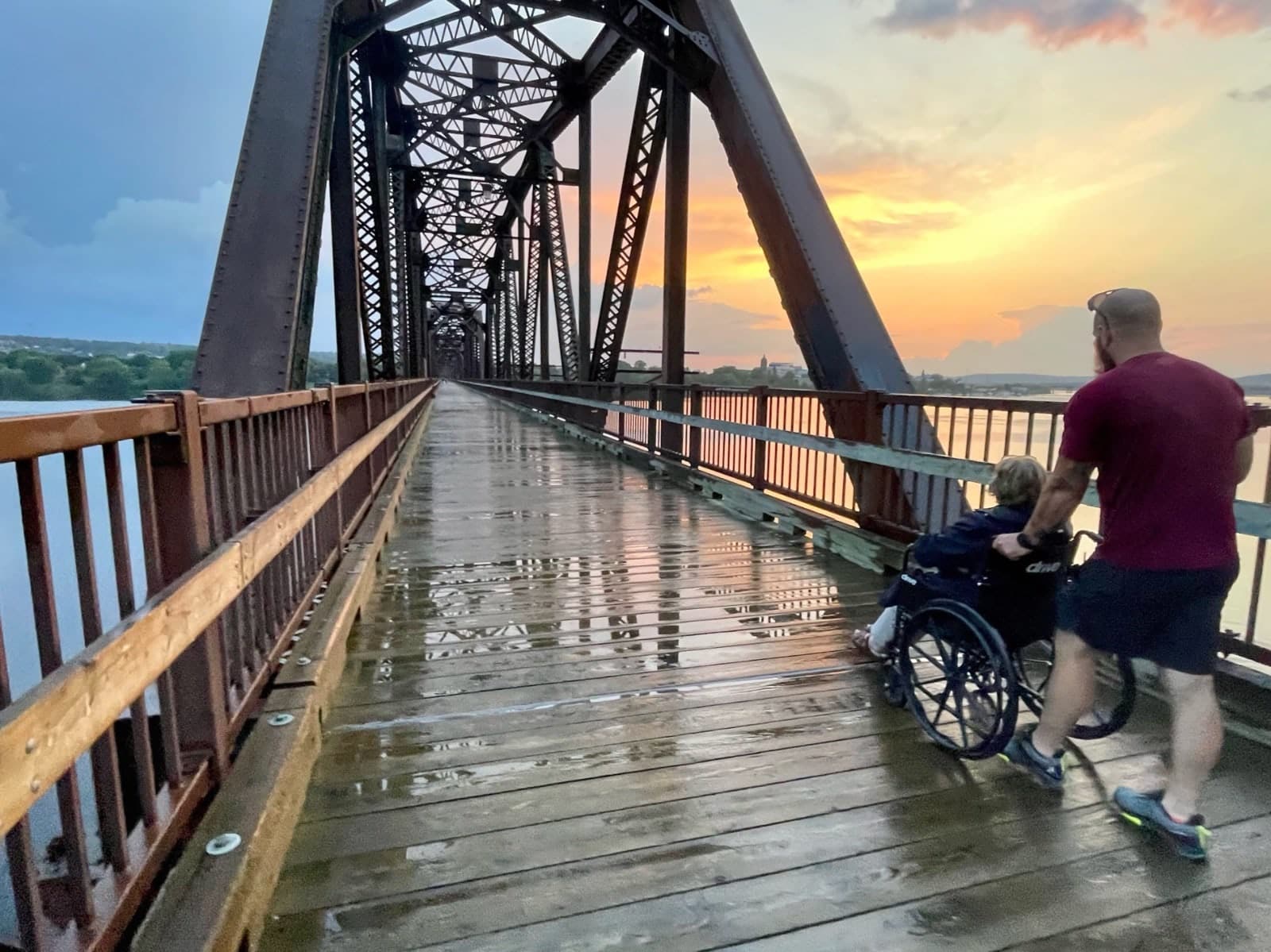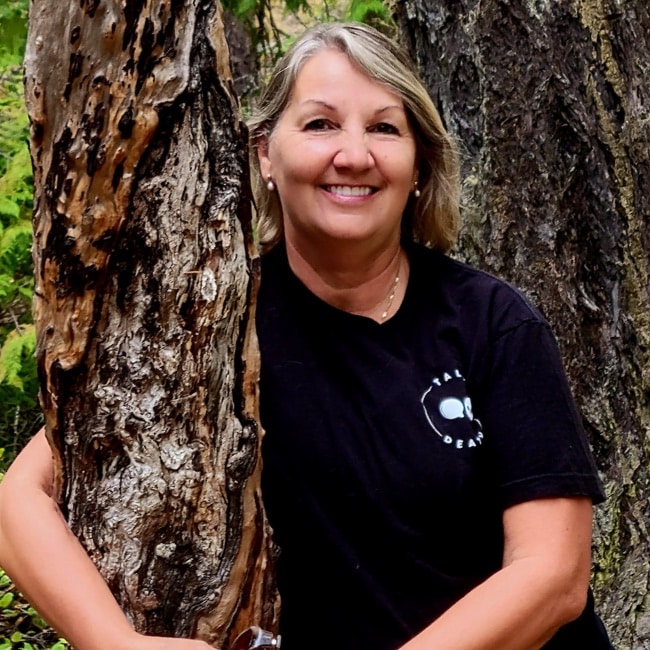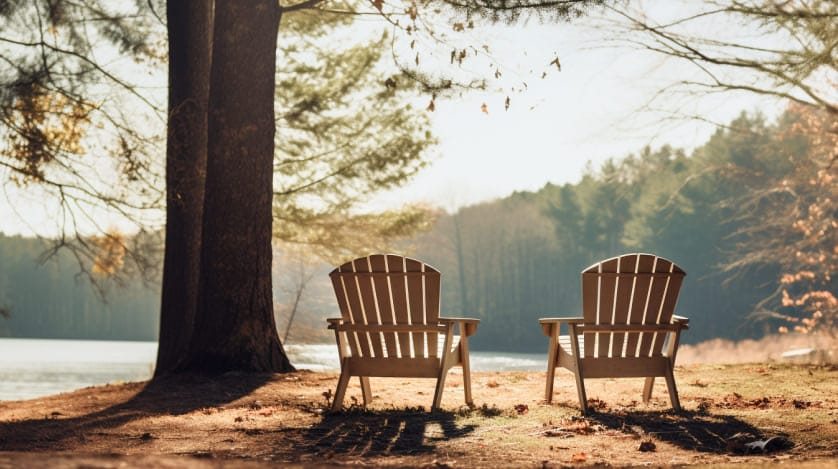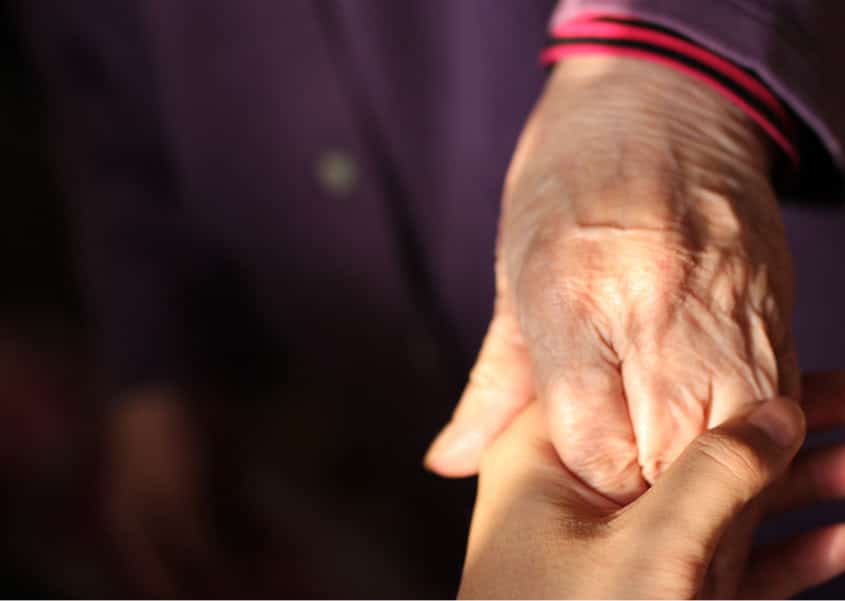Welcome to
London Death Doula
Embracing End-of-Life with Heart

Welcome to London Death Doula
Embracing End-of-Life with Heart

Who We Are
Jayne Dill, is a compassionate resident of southwestern Ontario, and is the founder at London Death Doula. With a background in nursing since 1984 and personal experience with loss, I have developed a deep understanding of the profound impact of death and the importance of compassionate care. It is my belief that everyone should have their say in how they wish to be cared for and treated. I approach each individual's end-of-life journey with empathy, respect, and a commitment to helping them find peace.

Discover the Benefits of Hiring a Death Doula
Experience a more meaningful and supported end-of-life journey by hiring a Death Doula. I am dedicated to empowering individuals and their loved ones during this challenging time. Here are the remarkable benefits you can expect:
Emotional Support
Facilitating difficult conversations and providing a safe space for expression, Death Doulas ensure that individuals and families are truly heard, understood, and supported throughout the process.
End-of-Life Planning
Create a clear and comprehensive plan for before and after death, relieving the burden on your loved ones and moving forward towards respecting and fulfilling your wishes.
Practical Assistance
A Doula will guide and support clients and families in a wholistic manner. We advocate and navigate with the medical system, and also utilize and connect local resources as required.
Spiritual Guidance
Receive gentle guidance and support in exploring and navigating the spiritual aspects of the dying process, finding solace and meaning amidst existential questions.
Companioning
Experience the comfort of a compassionate companion by your side. Death Doulas provide unwavering support, companionship, and a sense of connection, helping you feel less alone during this difficult time.
Educational Workshops
I continue to present interactive workshops to the community that include, Advance Care Planning, How We Die, Talking to Your Family, Body Disposition and What Matters to You.
By hiring a Death Doula, you can approach your end-of-life journey marked by peace, dignity, and profound meaning. Our services encompass emotional support, end-of-life planning, practical assistance, spiritual guidance, and unwavering companionship. Take the first step toward a more empowered and supported end-of-life experience.

Where We Meet
We arrange face-to-face meetings at a location of your choice, typically the comfort of your own home. The frequency of our visits is entirely up to you, and we adapt to your needs as your illness progresses. Our initial meeting will focus on identifying your specific requirements and establishing a starting point for your personalized plan of care.

When to Begin
It is best to start the conversation about end-of-life care sooner rather than later. By preparing in advance, we can help reduce the chaos and uncertainty that often accompany a crisis. Together, we create a comprehensive plan that will guide you and your loved ones, minimizing the burden of decision-making during difficult times.

How We Guide You
We approach our work with care and companionship, utilizing a range of tools to help you identify your goals, assess your priorities, and determine what you are willing to sacrifice and what you are not. Advance Care Planning is a thoughtful process that evolves over time and can be adjusted as your illness progresses. Through self-reflection and life review, we assist you in creating a comprehensive plan for the future. We also consider your legacy and offer support in writing your obituary, ensuring that your story is shared as you wish.
Embrace the opportunity to shape your end-of-life journey with heart. Allow us at London Death Doula to be your compassionate companions, walking alongside you as you navigate this profound chapter. Contact us today to begin the conversation and discover the peace of mind that comes from thoughtful end-of-life planning.

Why Choose London Death Doula
Our ultimate goal is to improve the end-of-life experience for you and your loved ones. By reflecting on your goals of care and making informed decisions, you can ensure that your treatment aligns with your desires. Planning ahead also relieves your family of the weight of decision-making, providing them with clear directions to follow. Meaningful conversations now can help prevent regrets about unspoken words later. We believe that involving your family and community in the process benefits their healing journey and fosters acceptance of the inevitable.
Preparing for end-of-life is a gift you can leave for your loved ones. By completing your health and financial plans, you provide them with peace of mind during a difficult time. Remember, all we have left in this world is what we leave behind in others.
Together, let us embrace end-of-life with compassion, grace, and heart at London Death Doula.
Frequently Asked Questions
What is a Death Doula?
A Death Doula, also known as an End of Life Doula, Death Coach or Thanadoula, is a trained professional who provides support and guidance to individuals who are nearing the end of their lives. As a Birth Doula helps to prepare, deliver and gives postpartum care to the mother and child, a Death Doula helps to prepare, vigal and support the dying individual and their family. Death Doulas aim to ease the dying process for their clients and their families by providing education about the dying process, preparation for whats to come, encouraging difficult conversations, and guidance while you grieve before and after death. A Death Doula views death as a natural part of life. The presence of Death Doulas is growing as more individuals seek alternative approaches to end-of-life care.
What services are offered?
At London Death Doula, services can vary depending on the needs of the client and family. We offer end of life planning with respect to the individuals beliefs, culture and personal needs, while maintaining dignity.
We help the client come to terms with their mortality, addressing any fears, worries or concerns they may have, and we provide a listening ear for them to express their thoughts.
We also offer assistance with funeral planning whether the wish is for a traditional service or something along the line of a memorial, celebration of life, a gathering of friends or no funeral at all.
We discuss options for burial, cremation, aquamation, or donation.
Overall, the services provided are designed to help clients navigate the end-of-life process with comfort, dignity and a sense of peace. The goal is for the client and their loved ones to feel more prepared and empowered as they approach end of life.
What are the benefits to hiring a Death Doula?
Hiring a London Death Doula can provide many benefits for the dying person and their loved ones by making the process more meaningful and expectations known.
As an RN working in adult oncology, my specialty was in complex pain and symptom management and palliative care. I am able to help evaluate and monitor pain issues and know when to advise the medical team to reassess for adjustments.
I provide the opportunity to have difficult conversations opening discussions on the dying process. While others may shy away, it is my
experience that individuals want to be aware of how they will know they are dying, and what that looks like.
Although its difficult to offer a specific time line, families can learn to be better prepared when they are aware of the signs and symptoms of impending death.
We can explore what an individuals life has meant to them, their highlights and proud moments, their fears and worries.
With an expected death in the home (EDITH), we review the do not resuscitate order (DNR), where to keep it and if and when 911 should be called. We can guide you on what to do at the time of death.
We will explore the role of food at end of life, and how you can always offer but never force. As the body prepares to die, it doesn’t require the same energy (food).
We develop a plan for the individuals environment including, sights, sounds, and smells. These may include music, soft lighting, candles and snacks for the family. Its alright to have the family pet on the bed if that is what the individual wants.
A Doula can demonstrate personal touch, hand holding, foot massage, face washing. Its ok to lie beside your individual if that gives them comfort.
Funeral arrangements can be made ahead of time, saving the need for these decisions at the time of death.
What resources are available?
End of Life Care can be an incredibly difficult time for families as they navigate the challenges of caring for a loved one in their final days. For those who are seeking support during this time, its important to know there are a variety of resources available to help.
One option for families searching for end-of-life care is to join a support group. These groups are designed to provide a safe and supportive environment for individuals who are facing similar challenges. Support groups are offered in person or virtually.
Another resource for families is to connect with a counsellor, social worker, grief educator or psychotherapist. These professionals can provide emotional support, guidance, and resources to help families navigate the challenges of end of life.
There are many organizations and professionals who are dedicated to specific illnesses, and are available to helping families during this difficult time.
What Are Your Qualifications, Jayne?
Education
I have been a Registered Nurse since 1984. Additionally, I have completed several certifications in Thanatology, Death Doula Training, Grief Educator, Learning Essentials Approaches to Palliative Care (LEAP), Comprehensive Advanced Palliative Care Education (CAPCE), Canadian Nursing Association, Hospice Palliative Care Nursing (CHPCN), as well as training in serious illness conversations, and several D’Souza programs related to oncology nursing. These teachings have helped me stay up to date with the latest industry trends and best practices. I am also an active member of the Death Doula Network International.
Professional Experience
I have several years of experience in nursing in various roles including Intensive Care, Orthopedics, Infertility and a strong focus in Adult Oncology at London Regional Cancer Centre. As a result of my training, I have acquired valuable skills in palliative care and complex pain management, as well as a strong understanding of informed consent, options and end of life care. I have applied my skills to the End of Life Doula work.
Personal Experience
We will all lose someone near and dear to us as well as friends and acquaintances over time. This is a natural process of the life cycle. Each loss is as individual as our relationship with the deceased. Weather it is a sudden death or an expected death, its never easy and there is always pain. I have experienced the death of a parent, sibling and child. Grief is a process and we learn to live with it moving towards more love than pain.
I remain a lifelong learner.
Will I have to be admitted to the hospital?
This will depend on your goals of care you have laid out in your end of life plan. It is up to you if you wish to stay home with appropriate help available, or transfer to hospital, palliative care, or hospice.
Its always good to have a plan, but should that plan not be attainable, we need to prepare for plan B. That might include transporting from home to a facility.
What location do you serve?
I serve London and the surrounding area.
What should I know about MAid (Medical Assistance in Death)?
MAiD is a personal choice that became legal in Canada June 2016. Anyone requesting a MAiD procedure must meet specific criteria to be eligible. Any Physician or Nurse Practitioner that administers the service, must meet certain safeguards. Your physician is obligated to refer you for an assessment if you request one. MAiD can be offered two ways, the first is an intravenous injection by the provider. The second is oral tablets self administered.
MAiD can generally be offered in hospitals, at home, in long term care and in some Hospice facilities. There are few exceptions that you may discuss with your provider.
In some cases you can have a MAiD procedure and still donate your organs, If you choose to have a MAiD procedure, you are not obligated to follow through with it. You can change your mind and decline the procedure.
For more information, visit dyingwithdignity.ca
What are my funeral options?
Funeral options should be discussed prior to death.
Traditionally, funerals included a viewing at the funeral home with a few days of visitation followed by a burial. More options include the following:
Some are choosing to have no funeral and are following the wishes of the deceased. Keeping in mind the purpose of the funeral, which is for the survivors to collectively grieve and support one another.
Home funerals are another option. With an expected death in the home, the deceased may remain at home for visitation. Following the visitation the body is then transported for cremation, aquamation or to the cemetery for burial. Home funerals may have some limitations.
Celebration of life and memorial services are popular as well. Generally the body is not present for these services. There may be more of a time lapse after the death, allowing long distance visitors to arrive. This also gives the family more time with their new reality.
Green burials are also an option but are limited to cemeteries that offer this service.